Share
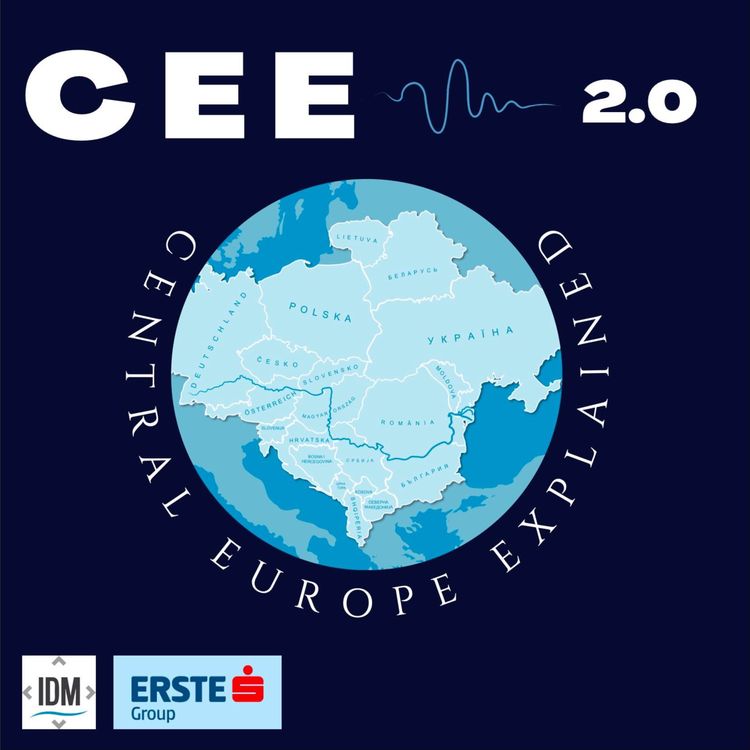
Central Europe Explained
SP05 - Kriegsrecht in Polen 1981
Vor 40 Jahren am 13. Dezember 1981 wurde in Polen das Kriegsrecht verhängt, Die Anhänger der Demokratiebewegung Solidarność wurden inhaftiert, die Armee nahm Einfluss auf die öffentlichen Medien, Bürgerrechte aufgehoben, hunderttausende Polen verließen das Land und suchten Asyl im Ausland.
Wie ist es dazu gekommen? In dieser Folge von “IDM Exptertise” blicken wir auf auf die Zeit während des Kriegsrechts aus der Perspektive eines damals in Polen lebenden Journalisten. Malwina Talik (IDM) spricht mit Otmar Lahodynsky über den damaligen Alltag in der Volksrepublik Polen, über die Wahrnehmung der Ereignisse in Österreich und über die Rolle von Musik für die Opposition. Zum Schluss sprechen die beiden auch über das heutige Polen.
Mehr über die Lieder von Solidarność können Sie auch aus der Sendung "Spielräume Spezial" auf Ö1 am 26. Oktober um 17:10 Uhr erfahren: https://oe1.orf.at/programm/20211026/655970/Lieder-der-Freiheit-Polen-1981
Die Sendung kann man 7 Tage nachhören.
Otmar Lahodynsky war langjähriger Redakteur beim Nahrichtenmagazin "profil" sowie EU-Korrespondent und stellvertretender Chefredakteur der Tageszeitung „Die Presse“. Von 2014 bis 2021 war er auch Präsident der Vereinigung Europäischer Journalisten. Für seine Verdienste in der Berichterstattung über Polen und die Solidarnosc-Zeit erhielt er den polnischen „Kavaliersorden“ von Präsident Bronislaw Komorowski.
More episodes
View all episodes
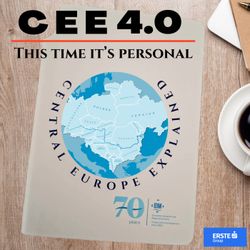
59. EP 59 Ukraine recovery facilities
20:50||Season 4, Ep. 59EP 59 Ukraine recovery facilities🌍🎙️ How do you rebuild a country while it’s still at war? In this episode of Central Europe Explained, host Sebastian Schäffer explores Ukraine's financial recovery and the immense challenges of reconstruction amidst ongoing war.💬 Featuring insights from Olga Pindyuk, an economist at the Vienna Institute for International Economic Studies, we dive into the urgent priorities for Ukraine, the need for international partnerships, and the critical role of private investment in rebuilding a stronger, more resilient nation.🔍 From energy infrastructure repairs to leveraging Ukraine’s vast resources in renewable energy and IT, this conversation unpacks the strategies required to secure both immediate and long-term recovery. Discover why safeguarding financial sovereignty and addressing corruption are essential for Ukraine's future.🎞️ Host recommendations: EU should drastically increase aid to UkraineFront-loading financial support to Ukraine: It’s now or never Written by our guest Olga PindyukAnthology «State of War» Нотатки про українську музикуThank you for joining us for this powerful discussion on resilience, recovery, and hope.Hosted by: Sebastian SchäfferGuest: Olga PindyukProduced by: Gloria Becerril#UkraineRecovery #Reconstruction #EconomicResilience #CEEPodcast #CentralEuropeExplained
58. EP 58 How can democracy fight back?
27:43||Season 4, Ep. 58🎧 Episode 58: How Democracy Can Fight Back? 🌍🎙️ In an age of growing far-right, nationalist and authoritarian movements across Europe and beyond, how can democracy respond? This episode of Central Europe Explained looks at the internal and external forces threatening European democracies and explores what it takes to safeguard democratic values. 💬 From the rise of populism and disinformation campaigns to the challenges of engaging citizens in the fight for democracy, this conversation highlights the urgent need for action. Discover how individuals, communities, and institutions can push back against polarising narratives and work together to protect the future of democracy.Tune in to uncover insights into the role of citizens and the shifting political landscapes, along with practical steps for building resilience in these challenging times.Host: Sophia BeiterGuest: Dr. Kinga Brudzińska Book recommendation: Autocracy, IncProduced by: Gloria Becerril#Democracy #HumanRights #Europe #CEEPodcast
57. EP 57 From Poland’s Border: Insights on Migration from Polish Activists
26:07||Season 4, Ep. 57🎧 Episode 57: Unlikely Activists? A Local View of the Polish-Belarus Border🌍🎙️ What drives everyday people to risk legal and social consequences to help migrants stranded at the Polish-Belarus border? In this episode of Central Europe Explained, host Malwina Talik speaks with Marianna Wartecka, a social activist deeply involved in supporting refugees.💬 From volunteering to full-time activism, Marianna shares her personal journey and the challenges her organization faces amidst increasing hostility toward migrants. Learn how local activism is reshaping lives and why the fight for dignity and human rights matters more than ever.🎞️ Host recommendation: Human Flow by Ai WeiweiHosted by: Malwina TalikGuest: Marianna WarteckaProduced by: Gloria Becerril#PolishBorder #Refugees #MigrationCrisis #HumanRights #CentralEuropeExplained #CEE
56. EP 56 Hungary and the EU Presidency
31:09||Season 4, Ep. 56🎧 Episode 56: Hungary’s EU Presidency🌍🎙️ In this episode of Central Europe Explained, hosts Gloria Becerril and Peter Techet take a deep dive into Hungary's current presidency of the Council of the European Union. Join us as we discuss the implications of this controversial leadership with László Andor, a former EU Commissioner and renowned economist.💬 We explore public sentiment surrounding Hungary's presidency, hearing from everyday citizens about their concerns and hopes for the future. How does Viktor Orbán's government shape their views on EU values and decision-making?🔍 Tune in for insightful analysis on the potential impact of Hungary’s presidency on EU policies, defense, and enlargement, and learn why this moment in history is critical for Europe.Hosted by: Gloria Becerril & Peter TechetGuest: László AndorProduced by: Gloria Becerril#Hungary #EUPresidency #ViktorOrbán #EuropeanUnion #PublicSentiment #Podcast #CentralEuropeExplained #CEE
55. EP 55 Schengen
29:13||Season 4, Ep. 55🎧 Episode 55: Schengen What does the Schengen Area represent for Europe, and why are Bulgaria and Romania still waiting for full access despite fulfilling all the requirements? 🎙️ In the latest episode of Central Europe Explained, we explore these pressing questions with the Romanian and Bulgarian ambassadors. 🔑 One of our guests shares a personal story from his student days, when his Eastern European passport led to countless struggles at the border. His experience sheds light on the broader challenges facing millions and the significance of Schengen membership today. 🚪 We also discuss “Air Schengen,” migration challenges, and the ongoing political obstacles delaying full membership for Romania and Bulgaria. Join us as we discuss what Schengen means for Europe’s future and why it’s about more than just crossing borders.Our host recommendation: European Museum SchengenHosted by: Sophia BeiterProduced by: Gloria Becerril #Schengen #Romania #Bulgaria #EuropeanUnion #Borders #Migration #Podcast #EuropeanIntegration #CentralEuropeExplained #CEE
54. EP 54 Potential of Minilateralisms
33:16||Season 4, Ep. 54🎙️✨ Welcome to Central Europe Explained episode 54 Join us as we explore the intriguing world of minilateralism in Europe. We will touch upon the aim of alliances like the Visegrad Four and the Three Seas Initiative and how they shape the future of the EU. Our special guest, Romain Le Quiniou, will share his insights on the effectiveness and challenges of these formats, offering a deep dive into their role in European integration. Tune in for an engaging discussion and a unique memory game to kick things off! Hosted by Malwina TalikProduced by Gloria Becerril#Minilateralism #VisegradFour #ThreeSeasInitiative #EuropeanIntegration #CentralEuropeExplained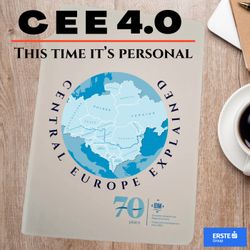
53. EP 53 Future Enlargement
25:06||Season 4, Ep. 53🎧 Episode 53: Future Enlargement 🌍🎙️ In this episode of Central Europe Explained, host Francesco Danieli chats with Sebastian Schäffer, director of IDM, about the future of the EU. Join us as we discuss the potential and challenges of EU enlargement and what lies ahead for Europe. Tune in for an insightful and engaging conversation! 🇪🇺✨ Book: "Balkan nach Europa - Sofort!"Meet our target region through our interactive map here!Produced by: Gloria Becerril#EUFuture #EuropeanUnion #CEEPodcast #EuropeNext #IDM #EUPolitics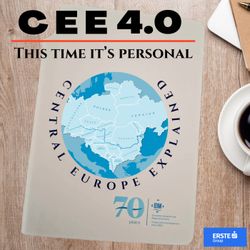
52. EP 52 20 Years of the EU enlargement
17:03||Season 4, Ep. 52🎧 Episode 52: 20 Years of the EU enlargement💭 Do you remember May 1, 2004, when the European Union had its largest expansion? In this episode of Central Europe Explained, we hear personal stories from politicians, writers, and key figures who were part of this historic event.Listen to Benita Ferrero-Waldner, Noémi Kiss, Jiří Šitler, Juraj Droba and Rudolf Schicker share their memories and thoughts from that important day. We also look at the future, discussing the hopes of eight candidate countries working to join the EU.🇪🇺 This episode offers a heartfelt look at the past, present, and future of the EU. Produced by: Gloria Becerril🔗 Click here to read more about the event 20 Years of EU Enlargement & EU Elections 2024: Summary and Outlook from the Danube Region.#EUEnlargement #EU2004Expansion #CentralEurope #EUHistory #EuropeanUnion #EnlargementAnniversary #EUIntegration #EuropeanPolitics #EasternEurope #WesternBalkans #EUMembership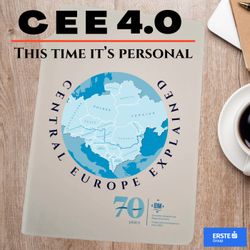
51. EP 51 2024 European Parliament elections
30:51||Season 4, Ep. 51Episode 51: 2024 European Parliament elections 🌟 In our season 4 opener, Central Europe Explained unpacks the 2024 European Parliament elections with a diverse panel from across Europe. Discover personal stories, insights on the elections' impact, and the future of the EU. Tune in for a compelling discussion that goes beyond politics! 🌐 🎙️ Panel guests:Sebastian Schäffer, Kamila Bogdanova, Melanie Jaindl, Malwina Talik, Sophia Beiter, Daniel Martínek, Péter Techet. Produced by:Gloria Becerril🔗 Click here to discover more about Parliamentary elections in our Youtube channel.